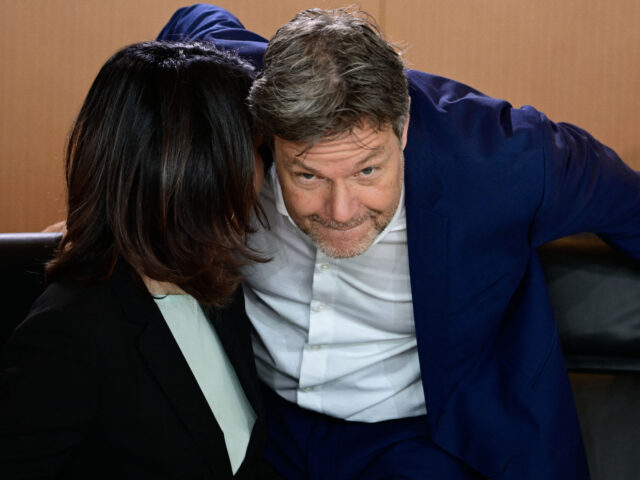Support for Germany’s ruling green party has reportedly collapsed after the country rushed to shut down all remaining nuclear power plants, and ruled against gas central heating from next year.
Germany’s Greens are no longer one of the top three most popular political parties in Germany, with ongoing environmentalist-driven scandals over nuclear power and home heating pushing the party below 15 per cent support.
The deterioration of the party’s popularity stands in stark contrast to the populist Alternative for Germany, which has now risen to a near-all-time high of 16 per cent, making it the third most popular party in the country behind the traditional centre-left and centre-right offerings.
According to the data released by Bild, the Green party result is its worst in over a year, with the three ruling parties serving in the country’s Federal coalition government no longer holding a majority of the votes between them.
Such a collapse in support is likely down to the Greens’ latest pro-climate agenda pushes, which have seen the annihilation of nuclear power in Germany, as well as a plan to ban the installation of most new oil and gas home heating systems by next year.
This latter move has proven highly controversial within the country, with the net zero-inspired ban effectively forcing the country’s population to start investing in electric heat pumps, which are often significantly more expensive than gas boilers both in terms of up-front cost and monthly bills.
Overall, polling has suggested that 78 per cent of Germans are against the ban.
Regardless of the increased cost such a ban is likely to impose on the German public, questions have also been raised regarding the feasibility of moving large numbers of German households off of gas and onto heat pumps.
While the supply of natural gas has dwindled significantly both in the German and European market, the country’s electricity grid has also been put under significant strain over the last year, with the absence of Russian fossil fuels prompting fears last year that there could end up being rolling blackouts.
Though an unseasonably warm winter helped avoid such a scenario from coming to pass, experts are now worried that a rapid increase in electricity use coming from heat pumps and electric car chargers could destabilise Germany’s energy infrastructure.
In order to help combat such an overload, the government agency in charge of Germany’s national grid has announced a plan for authorities to be given remote control of every household’s heat pumps and car chargers so that they can enforce rationing if and when it becomes necessary.
In effect, while possibly helping to alleviate blackouts, the measure would effectively hand the government the power to decide whether or not citizens are able to fuel their cars, as well as heat their homes, and by how much.
While this has shocked many across the nation, the government agency has insisted that Germans must now accept “necessary comfort restrictions” in order to facilitate the green transition technologies.

COMMENTS
Please let us know if you're having issues with commenting.